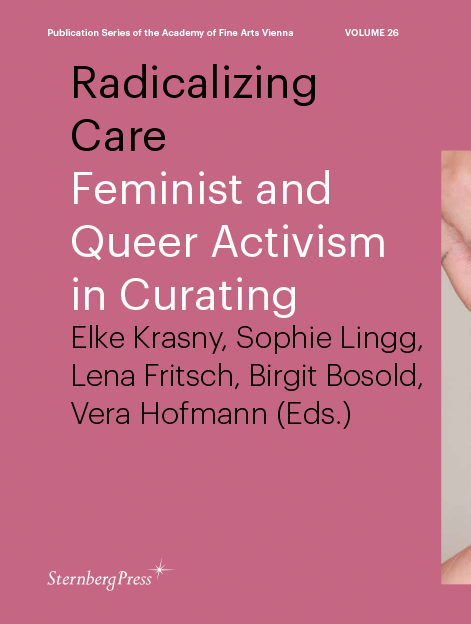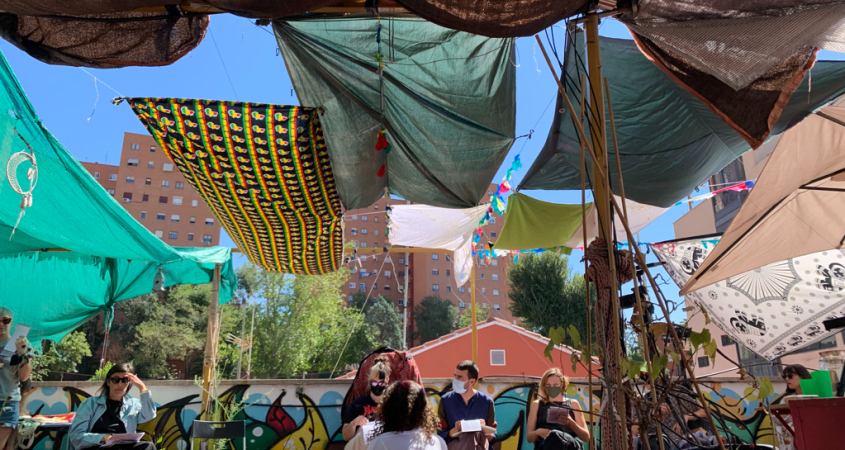Radicalizing Care. Feminist and Queer Activism in Curating
Elke Krasny, Sophie Lingg, Lena Fritsch, Birgit Bosold and Vera Hofmann (eds.): Radicalizing Care. Feminist and Queer Activism in Curating, Sternberg Press/Publication Series of the Academy of Fine Arts Vienna, 2022
What happens when feminist and queer care ethics are put into curating practice? What happens when the notion of care based on the politics of relatedness, interdependence, reciprocity, and response-ability informs the practices of curating? Delivered through critical theoretical essays, practice-informed case studies, and manifestos, the essays in this book offer insights from diverse contexts and geographies. These texts examine a year-long program at the Schwules Museum Berlin focused on the perspectives of women, lesbian, inter, non-binary, and trans people at the Schwules Museum; the formation of the Queer Trans Intersex People of Colour Narratives Collective in Brighton; Métis Kitchen Table Talks, organized around indigenous knowledge practices in Canada; complex navigations of motherhood and censorship in China; the rethinking of institutions together with First Nations artists in Melbourne; the reanimation of collectivity in immigrant and diasporic contexts in welfare state spaces in Vienna and Stockholm; struggles against Japanese vagina censorship; and an imagined museum of care for Rojava. Strategies include cripping and decolonizing as well as emergent forms of digital caring labor, including curating, hacking, and organizing online drag parties for pandemic times. With contributions by Edna Bonhomme, Birgit Bosold, Imayna Caceres, Pêdra Costa, COVEN BERLIN, Nika Dubrovsky, Lena Fritsch, Vanessa Gravenor, Julia Hartmann, Hitomi Hasegawa, Vera Hofmann, Hana Janečková, k\are (Agnieszka Habraschka and Mia von Matt), Gilly Karjevsky, Elke Krasny, Chantal Küng, Sophie Lingg, Claudia Lomoschitz, Cathy Mattes, Elizaveta Mhaili, Jelena Micić, Carlota Mir, Fabio Otti, Ven Paldano, Nataša Petrešin-Bachelez, Nina Prader, Lesia Prokopenko, Patricia J. Reis, Elif Sarican, Rosario Talevi, Amelia Wallin, Verena Melgarejo Weinandt, Stefanie Wuschitz.





